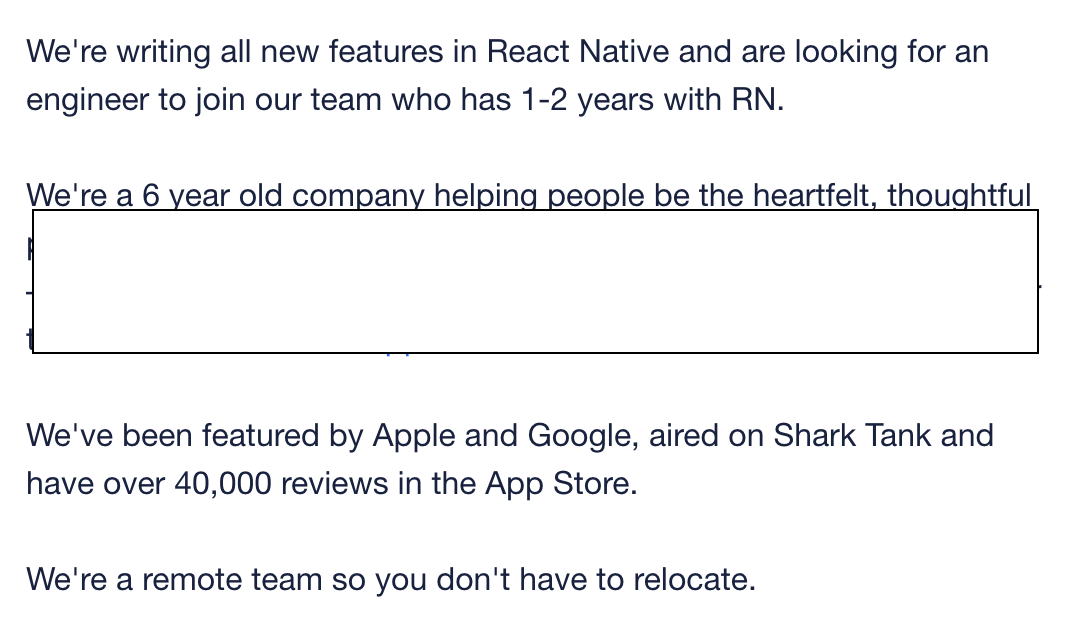As a remote company, you should make use of your global talent pool. Part of that is making sure that your job descriptions fit within all cultural norms. Doing that is hard, as different cultures find different things acceptable and unacceptable, in the same way that one culture might find something appealing, and another could find it off-putting.
The key is to write job descriptions that can attract candidates from the most possible diverse candidate pool. It's surprisingly easy to miss the culture and language of whole continents, so it's important to be mindful about this. Before we start with some advice, a big disclaimer: There is no "one size fits all" solution here. Some companies might profit from different language in their job description, while others might be better off with the advice mentioned in this article. Read on.
What is the issue?
When we think about job descriptions for remote teams, then there are a few things to consider. First of all, you are launching your job ad to the whole world, not just your city or state. That means that you are reaching candidates from all walks of life. That's beautiful and unique, but also needs an extra layer of cautiousness and mindfulness.
With a candidate pool this big it's easier to hire a diverse team, but it's also even easier to only hire your own kind. The unique thing with a remote team is that the pipeline can impossibly be your problem. In return, how you present yourself and your company has an even bigger impact on your hiring pipeline.
Finally, you're talking to different cultures and people from different continents. What might be standard language on the US West Coast (keyword: hacker, ninja) could be misunderstood or seen as awkward in other parts of the world (do you blame them)? Don't lose the character and culture of your company, but be mindful that the cool, hip language you're trying to use could be misunderstood.
So, how do you write a better job description? Let's take a look at some examples.
Patronizing & Localized Language
It's almost a joke right now, but US West Coast business language keeps sneaking its way into remote job listings, take a look:

While this is quite an obvious example, localized language finds its way into most job adverts. That's okay, but can also limit and bias your applicant pool. Case above: The people applying to a "Sales Ninja" position are possibly fundamentally different than people applying to a "Senior Sales Associate" position. It can be an interesting test to put out adverts with different job titles and see how the applicant pools shift!
The gist: Different people, different cultures and different backgrounds react differently to certain wording. While you might impress a certain kind of people with being young, edgy and calling yourself a Ninja, it's also likely to throw off other people. In the long run, that can be a limiting factor.
Being precise about the details
With remote work being rather new, there are a lot of nuances in it. Being precise about how work will happen is absolutely crucial to give people the confidence to apply. Let's look at another example.

This seems like a great, clear job advert you often see on leading platforms. On the other hand, it also seems rather short (yes, this was the whole advert) and misses a few key details:
- How many people are in the company, and over how many timezones does it span?
- How are working hours?
- What local benefits can they provide?
- How does remote work happen?
That seems to be a lot of information, but if you can't take anything for granted, it's very valuable information. Example: US workers expect to get healthcare and 401k from their employer, while in Europe that is often private, but employees expect 20 - 30 days of PTO time. It's the small things.
Clear Expectations for everyone
Finally, to continue with the topic of being precise, a company should always be extra clear about their expectations. That involves:
- Seniority Levels, including Salary Ranges
- Type of Work
- Working Hours & Location of Team Members
- Work Arrangement
- Benefits & other compensation
It can be hard to think about all that. If you need help in the future to make the most of your global talent pool, just send us an e-mail!
